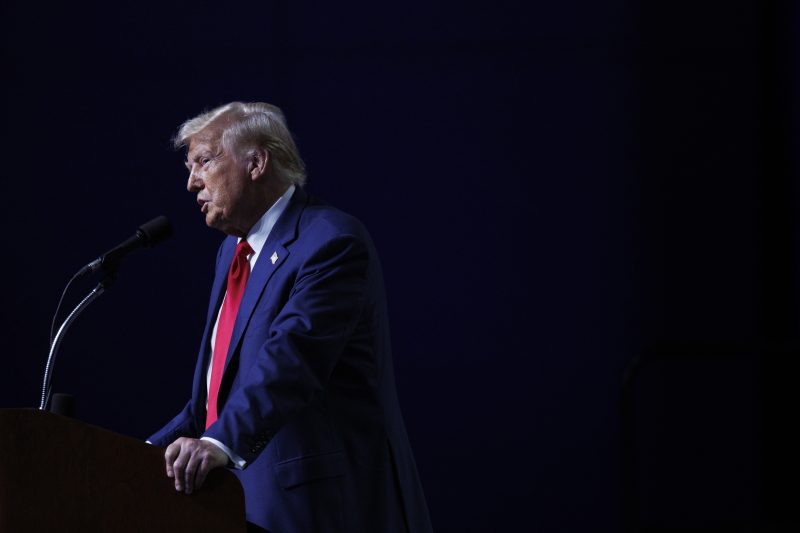
Trump Blames Biden and Harris for Assassination Attempt, Despite Lack of Evidence
In a recent speech, former President Donald Trump made controversial statements without evidence, implying that President Joe Biden and Vice President Kamala Harris were somehow associated with an assassination attempt against him. Such baseless claims not only lack factual support but also further fuel political divisiveness in the already polarized landscape of American politics.
As a public figure and a former president, Trump holds significant influence over a large portion of the population. When he makes unsubstantiated claims, especially those of such grave nature, it is essential to critically evaluate the validity of his statements. Without concrete evidence to back up his accusations, these claims should be dismissed as misleading attempts to sow doubt and discord rather than contributing to any meaningful dialogue or discourse.
Furthermore, the implications of such rhetoric go beyond mere political jabs. Accusing individuals, especially those in positions of power, of involvement in a serious crime like an assassination attempt without any evidence can have grave consequences. It can tarnish their reputation, damage their credibility, and incite unwarranted suspicion among the public. In a society that values the presumption of innocence and the rule of law, it is crucial to adhere to principles of fairness and evidence-based reasoning.
In the realm of politics, allegations and accusations are often used as tools to undermine opponents and shape public perception. However, when these tactics veer into the realm of unfounded conspiracy theories and baseless attacks, they erode the foundation of civil discourse and democratic principles. It is incumbent upon both public figures and the general public to uphold standards of honesty, integrity, and accountability in political discourse.
As consumers of information, it is essential to approach sensational claims with a critical eye, demanding verifiable evidence and factual support before accepting them as truth. In today’s hyper-partisan environment, where misinformation and disinformation abound, it is more crucial than ever to prioritize truth over sensationalism and seek to engage in constructive and informed dialogue.
In conclusion, baseless accusations and inflammatory rhetoric have no place in responsible political discourse. As citizens, we must hold our leaders and public figures accountable for their words and actions, demanding transparency, honesty, and integrity in all matters. By fostering a culture of critical thinking and evidence-based reasoning, we can strive towards a more informed and enlightened society where facts, not fiction, guide our decisions and beliefs.
